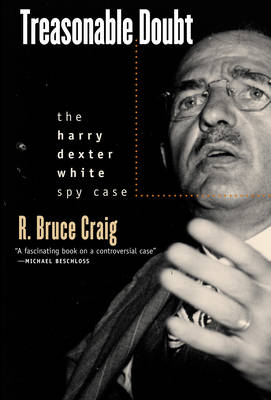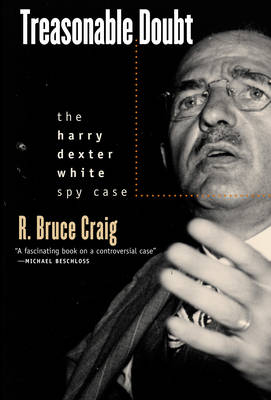
Je cadeautjes zeker op tijd in huis hebben voor de feestdagen? Kom langs in onze winkels en vind het perfecte geschenk!
- Afhalen na 1 uur in een winkel met voorraad
- Gratis thuislevering in België vanaf € 30
- Ruim aanbod met 7 miljoen producten
Je cadeautjes zeker op tijd in huis hebben voor de feestdagen? Kom langs in onze winkels en vind het perfecte geschenk!
- Afhalen na 1 uur in een winkel met voorraad
- Gratis thuislevering in België vanaf € 30
- Ruim aanbod met 7 miljoen producten
Zoeken
€ 101,95
+ 203 punten
Uitvoering
Omschrijving
Whittaker Chambers and Elizabeth Bentley shocked America in 1948 with their allegations that Communist spies had penetrated the American government. The resulting perjury trial of Alger Hiss is already legendary, but Chambers and Bentley also named Harry Dexter White, a high-ranking Treasury official. (Hiss himself thought that White had been the real target of the House Un-American Activities Committee.) When White died only a week after his bold defense before Congress, much speculation remained about the cause of his death and the truth of the charges made against him. Armed with a wealth of new information, Bruce Craig examines this controversial case and explores the "ambiguities" that have haunted it for more than half a century. The highest ranking figure in the Roosevelt and Truman administrations to be accused of espionage, White played a central role in the founding of the United Nations' twin financial institutions, the World Bank and International Monetary Fund. For years after his death, White was a target of red-baiting by FBI director J. Edgar Hoover and Eisenhower's attorney general Herbert Brownell. Two Republican-controlled Senate committees even held White accountable for formulating the "pro-Russian" Morgenthau Plan for post-war Germany and for orchestrating the loss of mainland China to the Communists. Craig draws heavily on previously untapped or underused sources, including White's personal papers, Treasury Department records, FBI files, and the once secret Venona files of decrypted Soviet espionage cables. Interviews with nearly two dozen key figures in the case, including Alger Hiss and former KGB officer V. G. Pavlov, also help bring White's story to life. Sifting through this mountain of evidence, Craig retraces White's rise to power within the Treasury Department and confirms that White was involved in a "species of espionage"--but also shows that the same evidence contradicts Bentley's charges of "policy subversion." What emerges is an evenhanded portrait of neither a monster nor a martyr but rather a committed New Dealer and internationalist whose hopes for world peace transcended national loyalties--a man who saw some benefit in cooperating with the Soviets but had no affection for dictatorship. Although it still remains unclear whether White leaked classified information vital to national security, Craig clearly shows that none of the most serious allegations against him can be substantiated.
Specificaties
Betrokkenen
- Auteur(s):
- Uitgeverij:
Inhoud
- Aantal bladzijden:
- 446
- Taal:
- Engels
Eigenschappen
- Productcode (EAN):
- 9780700613113
- Verschijningsdatum:
- 3/05/2004
- Uitvoering:
- Hardcover
- Formaat:
- Genaaid
- Afmetingen:
- 164 mm x 236 mm
- Gewicht:
- 811 g

Alleen bij Standaard Boekhandel
+ 203 punten op je klantenkaart van Standaard Boekhandel
Beoordelingen
We publiceren alleen reviews die voldoen aan de voorwaarden voor reviews. Bekijk onze voorwaarden voor reviews.









